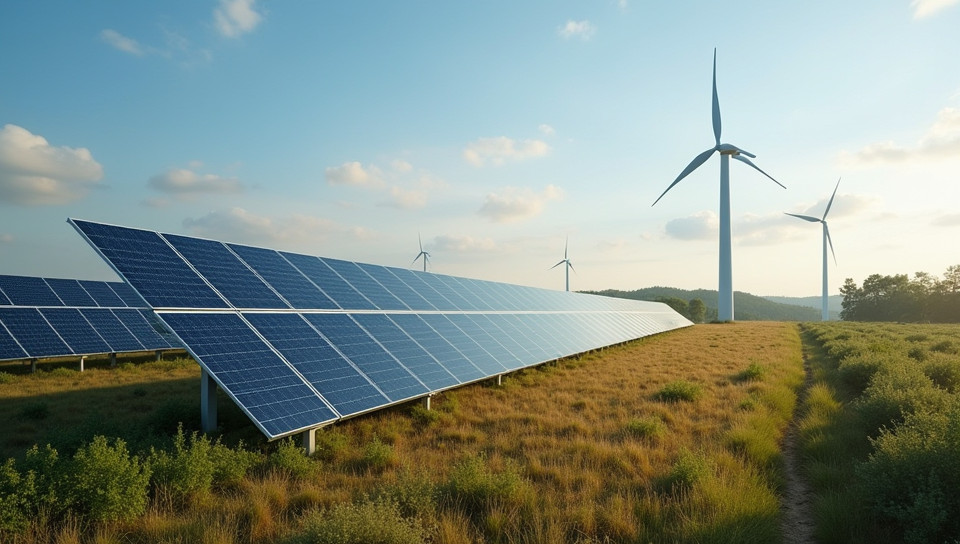Non-renewable energy sources provide base load power constantly 95%

The Unsung Heroes of Our Energy Grid: Non-Renewable Sources Providing Base Load Power Constantly
As the world grapples with the challenges of climate change, energy security, and sustainable development, the importance of a reliable and constant energy supply cannot be overstated. Amidst the growing focus on renewable energy sources, non-renewable energy sources continue to play a vital role in providing base load power to our grids. In this article, we'll delve into the world of non-renewable energy sources and explore their significance in ensuring a stable and efficient energy supply.
What is Base Load Power?
Before we dive deeper into the role of non-renewable energy sources, let's first understand what base load power means. Base load power refers to the minimum amount of electricity required by a power grid at any given time. It is the steady flow of electricity that meets the basic needs of households, businesses, and industries.
The Reliability of Non-Renewable Energy Sources
Non-renewable energy sources such as coal, natural gas, and oil have been the backbone of our energy infrastructure for centuries. Their ability to provide a constant and reliable source of power is unparalleled. Unlike renewable energy sources like solar and wind, which are intermittent and dependent on weather conditions, non-renewable energy sources can operate continuously, meeting the demands of base load power.
- High capacity factor: Non-renewable energy sources have a high capacity factor, meaning they can generate electricity at or near their maximum capacity for most of the time.
- Low variability: The output of non-renewable energy sources is not affected by weather conditions, ensuring a stable and consistent supply of electricity.
- Scalability: Non-renewable energy sources can be easily scaled up to meet increasing energy demands.
The Importance of Non-Renewable Energy Sources
While renewable energy sources are gaining traction, non-renewable energy sources continue to play a crucial role in our energy mix. Their importance cannot be overstated:
- Energy security: Non-renewable energy sources provide a secure and reliable source of power, reducing the risk of energy shortages and outages.
- Economic benefits: The development and operation of non-renewable energy sources create jobs, stimulate economic growth, and generate revenue for governments.
- Energy storage: Non-renewable energy sources can be used to store excess energy generated from renewable sources, ensuring a stable supply even during periods of low renewable output.
Conclusion
In conclusion, non-renewable energy sources are the unsung heroes of our energy grid, providing base load power constantly and reliably. While the focus on renewable energy is well-deserved, we must not overlook the importance of non-renewable energy sources in ensuring a stable and efficient energy supply. As we move forward towards a more sustainable future, it's essential to recognize the value of non-renewable energy sources and find ways to utilize them efficiently while transitioning to cleaner forms of energy.
- Created by: Sophia Navarro
- Created at: Aug. 18, 2024, 12:06 a.m.
- ID: 7673



